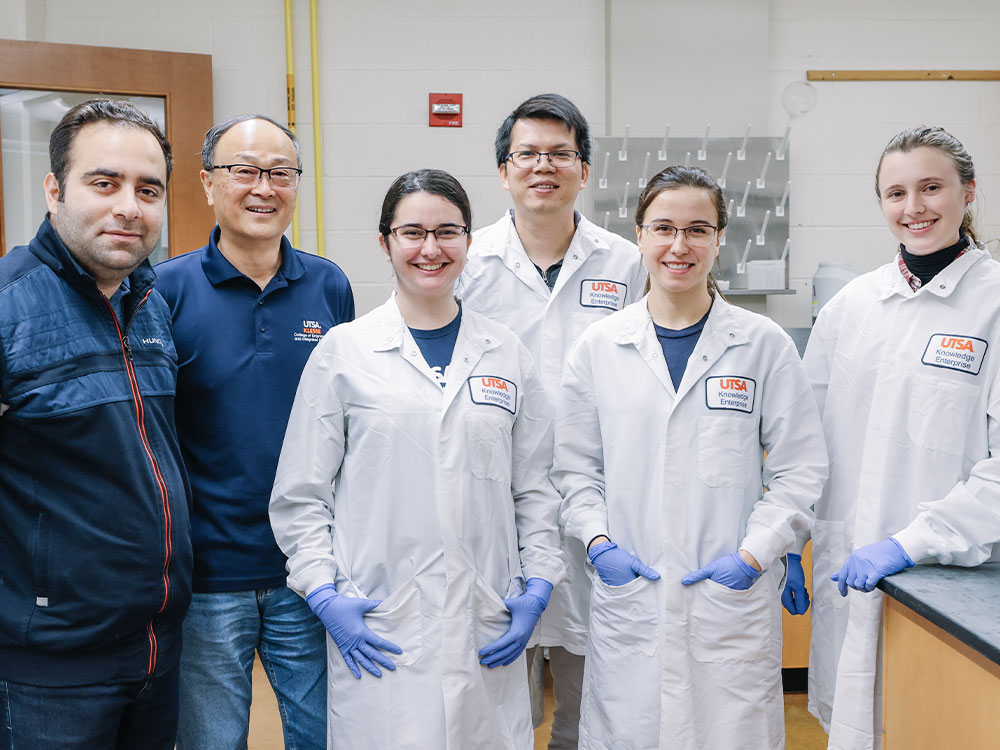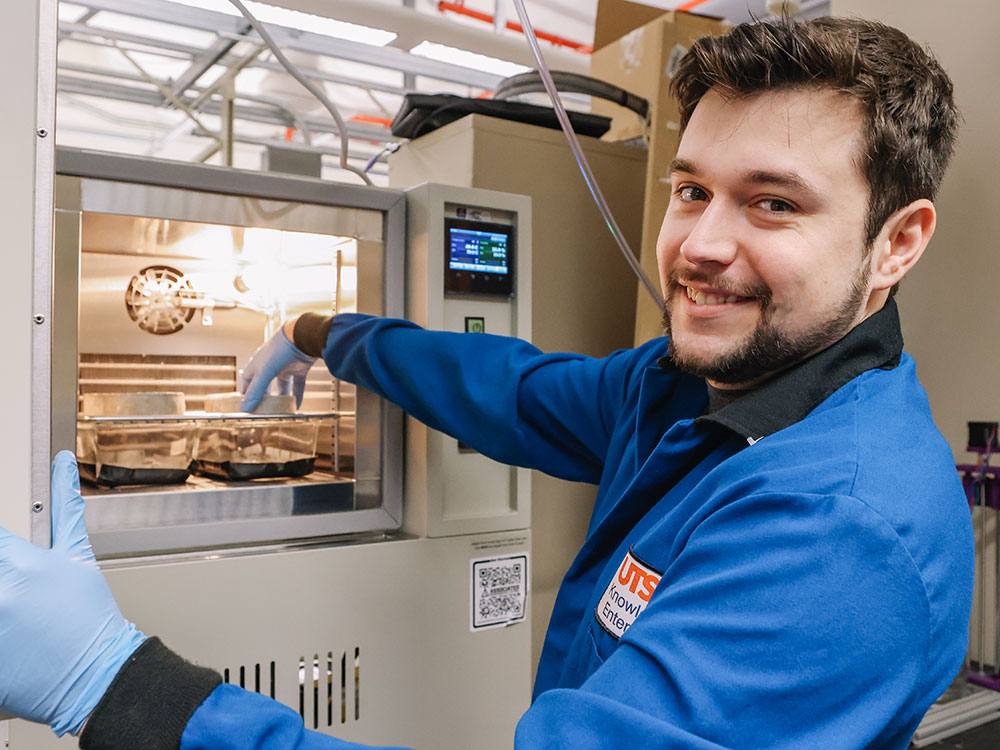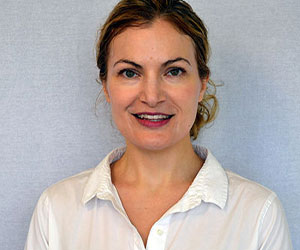
Why Pursue a PhD in Biomedical Engineering
The Biomedical Engineering PhD is a joint program with the Klesse College of Engineering and Integrated Design and the Graduate School of Biomedical Sciences. The educational goals of this program are founded on the belief that the basic scientific approach is critical to the fundamental understanding of human health and the treatment of disease. This program unifies engineering and science with the medical field. This multidisciplinary program offers cutting-edge technology with translational research for the investigation of fundamental bioengineering questions associated with the diagnosis and treatment of human diseases.
PhD students have the option to continue their training as a post-doc for a year or 2 after completion of the program before seeking a faculty position in an academic institution. Other students may apply for positions with the biomedical industries or the federal agencies (FDA, etc) after graduation. Graduates from our MS program have the option to apply to PhD programs in BME or to the medical school. Like the PhD students, the MS students may also apply for positions with the biomedical industries or the federal agencies (FDA, etc) after graduation.

Research Opportunities
Multidisciplinary research is mostly translational, with applications in medicine. Current students in the program perform research on biomaterials, biomechanics, or bioimaging, with applications in orthopedics, cardiovascular, or neurology. Examples of current research areas of focus are tissue engineering and drug deliveries for bone and cardiovascular applications, Brain MRI, bone mechanics, cardiovascular mechanics, dental materials, biosensors, cellular engineering, and tissue-implant interfaces.
Admission & Application Requirements
Applications are submitted through the UT San Antonio Graduate Application. Please upload all required documents (listed below) on your UT San Antonio Graduate Application. It is the applicant’s responsibility to ensure completion and submission of the application, a nonrefundable application fee, and all required supporting documents are on file with UT San Antonio by the appropriate application deadline.
| Biomedical Engineering (PhD) | ||
|---|---|---|
| Required Degree | Bachelor's Degree from an accredited college or university in the United States or have proof of equivalent training at a foreign institution. | |
| Minimum GPA | 3.0 (on a 4.0 scale) Departments may consider GPA of last 60 semester credit hours | |
| Coursework | Completed adequate credit hours or foreign institution equivalent coursework as preparation for the program. | |
| Transcripts* | Required from all institutions attended; international transcripts must be recorded/translated to English | |
| Credential Evaluation | Required if you have earned university-level credit from foreign institutions. Submit an evaluation of your transcripts from FCSA or any NACES-approved credential evaluation agency. | |
| English Language Proficiency | 79 TOEFL iBT / 6.5 IELTS / Duolingo 100 For exams taken on or after January 21, 2026: We require a minimum TOEFL iBT score of 4.0. |
|
| Purpose Statement | Required | |
| Resume | Required | |
| Letters of Recommendation | 2 academic or professional reference(s) demonstrating your attributes for successful completion of this program (you will request these through the Graduate Admissions Application; let your recommenders know of your deadline to ensure submissions are on time) | |
| *Unofficial transcripts will be taken into consideration for admissions; however, if admitted into the program, you must submit official transcripts to the University. | ||
Application Deadlines
Applicants are encouraged to have their admission file completed as early as possible. All applications, required documents and letters of recommendation, if applicable, must be submitted by 5:00 PM U.S. Central Time on the day of the deadline. Deadlines are subject to change.
| Biomedical Engineering (PhD) | |||
|---|---|---|---|
| Timing on Admission Decision: Completed applications will be reviewed for admission on a fixed basis. Applicants can expect to receive an admission decision by April 1 for fall and December 1 for spring. | |||
| Application Deadlines for: | Priority | International | Domestic |
| Spring 2026 | October 1 | October 1 | |
| Summer 2026 | Not Available | Not Available | |
| Fall 2026 | February 1 | February 1 | |
| Spring 2027 | October 1 | October 1 | |
| Summer 2027 | Not Available | Not Available | |
Career Options
UT San Antonio prepares you for future careers that are in demand. The possible careers below are based on data pulled by a third-party tool called Emsi, which pulls information from sources like the U.S. Bureau of Labor Statistics, U.S. Census Bureau, online job postings, other government databases and more to give you regional and national career outlook related to this academic program.
While in a doctoral program, a student may earn a master’s degree provided the following conditions are satisfied:
- A student must be admitted to candidacy.
- A student is eligible to receive a master’s degree upon completion of University-wide requirements and any additional degree requirements specific to the program.
- The Doctoral Studies Committee, Department Chair, and the Graduate Associate Dean of the College must recommend students for the degree.
- The student must apply for graduation by the published deadline the semester prior to awarding the doctoral degree.
- All required coursework in the doctoral program at the time of admission to candidacy must have been taken within the previous six years.
- If the master’s degree requires a thesis, the degree cannot be awarded on the basis of the doctoral qualifying examination.
- Students will not be approved for an additional master’s degree in the same field in which an individual has previously received a master’s degree.
This program is housed at Main Campus, with courses also being held at the Health Science Center.



